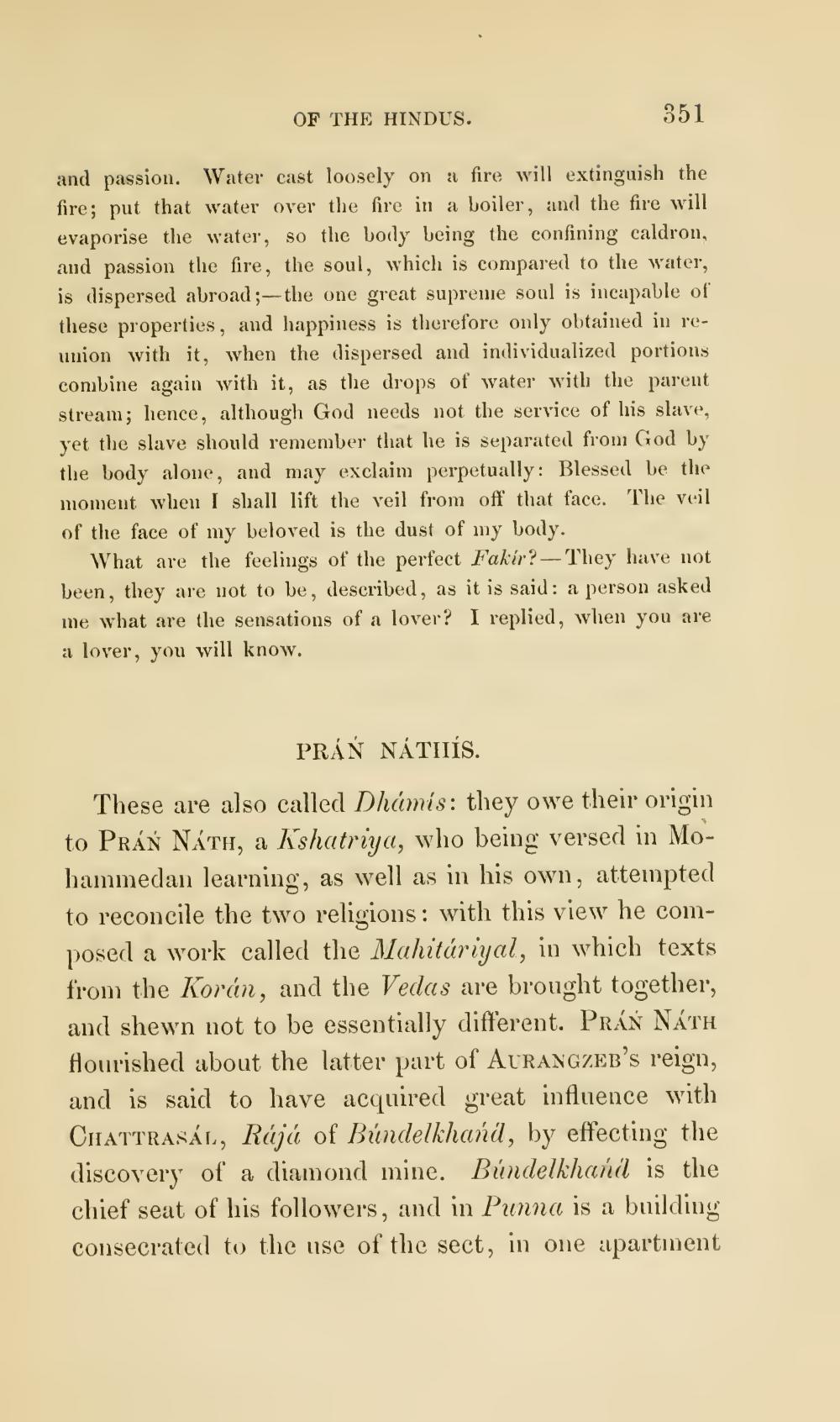________________
OF THE HINDUS.
351
and passion. Water cast loosely on a fire will extinguish the fire; put that water over the fire in a boiler, and the fire will evaporise the water, so the body being the confining caldron, and passion the fire, the soul, which is compared to the water, is dispersed abroad;--the one great supreme soul is incapable of these properties, and happiness is therefore only obtained in reunion with it, when the dispersed and individualized portions combine again with it, as the drops of water with the parent stream; hence, although God needs not the service of liis slave, yet the slave should remember that he is separated from God by the body alone, and may exclaim perpetually: Blessed be the moment when I shall lift the veil from off that face. The veil of the face of my beloved is the dust of my body.
What are the feelings of the perfect Fakir? - They have not been, they are not to be, described, as it is said: a person asked me what are the sensations of a lover? I replied, when you are a lover, you will know.
PRÁŇ NÁTHÍS. These are also called Dhámís: they owe their origin to PRÁŇ Náth, a Kshatriya, who being versed in Mohammedan learning, as well as in his own, attempted to reconcile the two religions: with this view he composed a work called the Mahitáriyal, in which texts from the Korán, and the Vedas are brought together, and shewn not to be essentially different. PrÁN NÁTH Hourished about the latter part of AURANGZEB's reign, and is said to have acquired great influence with CHATTRASÁL, Rájá of Bundelkhand, by effecting the discovery of a diamond mine. Búndelkhand is the chief seat of his followers, and in Punna is a building consecrated to the use of the sect, in one apartment




